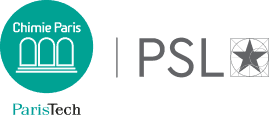Modern analytical chemistry for biotechnology and clinical diagnostics
MH24OP.BIA
final written exam with documents
The developments and trends in modern analytical chemistry are going toward process simplification, automation and miniaturization while preserving the performance and reliability of analytical results. Possibilities and difficulties inherent in miniaturization at each step of an entire analytical process are quite different and should be addressed. Thus, the main goal of this course is to provide a comprehensive overview of the current innovations in the field of analytical systems. The final objective is presented as the development of micro(nano)sensors and micro total analysis systems (µTAS) for biotechnology and clinical diagnostic applications
The course will focus on new analytical and bioanalytical tools allowing the downsizing of several laboratory functions (sample introduction, treatment, separation, detection) in order to handle extremely small fluid volumes but also to integrate aforementioned lab processes on a miniaturized device of a few square centimeters to achieve automation and high-throughput screening. The main topics of concern for the students will be 1) New functionalized nanomaterials for diagnosis: nano-supports (nanoparticles, nanotubes, monoliths, molecular imprinted materials …), selective agents (antibodies/proteins, aptamers, chelating agents…) and conjugation procedures; 2) Developments in miniaturized separation methods (chromatographic or électrokinetic) mainly based on molecular recognition to purify, concentrate and isolate analytes of interest; 3) Detection in miniaturized analytical systems (optical, electrochemical, mass spectrometry); 4) Analytical applications on going from standard bioassays to micro(nano)sensors and µTAS for biotechnology and clinical diagnostics.
Teaching language: FR
Documents:
handouts, publications and quiz in english (website)
